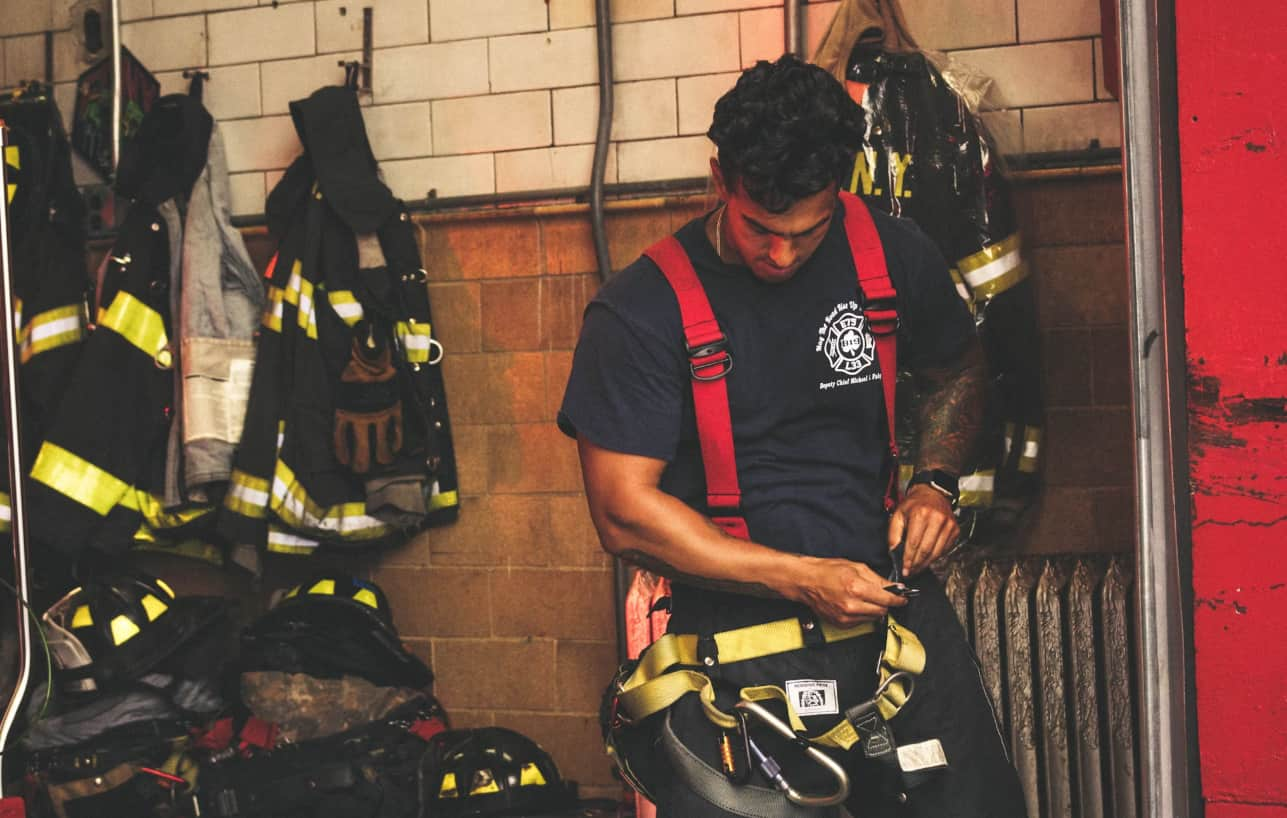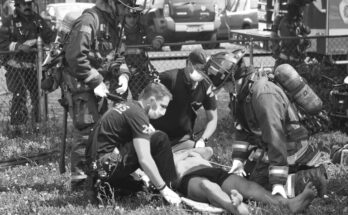Firefighting is a noble yet perilous profession, with firefighters often facing life-threatening situations to protect communities.
Unfortunately, the nature of this job exposes them to significant risks of injury, from burns and smoke inhalation to fractures and traumatic injuries.
According to the NFPA’s 2022 report, the number of nonfatal firefighter injuries increased to 65,650, the largest since 2015.
This is an 8% increase from 60,750 in 2021. This data includes injuries sustained while performing training, duties, non-fire situations, and ground operations. The increase in injury rates highlights the continuous difficulties with safety that firefighters face.
When a firefighter is injured on duty, it can lead to substantial physical, emotional, and financial challenges. Knowing the appropriate steps to take after an injury can help ensure proper recovery and compensation.
A Firefighter’s Guide to Managing Recovery After Job-Related Injuries

In this article, we’ll outline some essential steps for firefighters to take after a job-related injury.
Prioritize Immediate Medical Care
The first and most crucial step after sustaining an injury as a firefighter is to seek immediate medical attention.
Even if injuries appear minor, the high-risk nature of firefighting can result in complications that aren’t immediately apparent.
Visiting a medical professional ensures a comprehensive examination and timely treatment, which is vital for recovery.
Additionally, obtaining medical documentation of the injury is essential for any future claims or benefits.
ScienceDirect reported that firefighters face significant ergonomic hazards due to job demands, leading to a high incidence of musculoskeletal disorders (MSDs).
46.39% of firefighters are estimated to be impacted by MSDs. This highlights the significant danger that a firefighter’s work-related stress poses for health issues.
Why is it critical for firefighters to report duty-related injuries?
Firefighters should inform their healthcare providers that the injury occurred during duty. This information is critical for accurate record-keeping and for initiating workers’ compensation claims.
Prioritizing medical care aids in physical recovery while providing a foundation for any legal and financial processes that may follow.
Report the Injury to Supervisors and Document Everything
Once immediate medical needs are addressed, the next step is to report the injury to a supervisor as soon as possible. Officially documenting the incident with the fire department is crucial for creating an accurate record of the events leading up to the injury.
This report should include the time, date, and location of the incident, as well as detailed descriptions of the circumstances and any witnesses.
Keeping personal copies of all documents, including medical reports and correspondence with the department, is also essential.
Why is proper documentation crucial for injury claims?
Proper documentation not only helps in substantiating the injury claim but also ensures that all necessary procedures are followed.
This step is critical for accessing benefits like workers’ compensation and protecting the firefighter’s rights in any subsequent legal proceedings.
-
Connect with a Local Personal Injury Lawyer
Injured firefighters should consider consulting a local personal injury lawyer who specializes in workplace injuries and public safety occupations.
Navigating the complexities of workers’ compensation claims and other potential legal avenues can be challenging, especially while recovering from an injury.
A personal injury lawyer can provide valuable guidance on the firefighter’s rights and help them explore additional compensation options beyond standard workers’ compensation.
For example, in Colorado, firefighters encounter unique challenges, such as wildfires and high-altitude conditions, which can worsen injuries and cause long-term health issues.
The Colorado State Forest Service notes that almost 2.5 million people, or roughly half of Colorado’s population, reside in the wildland-urban interface.
More than one million of these inhabitants live in areas with a moderate to extremely high risk of wildfire. This highlights the significant wildfire risk to a big portion of the state’s population.
Colorado Springs, in particular, is known for its unpredictable weather patterns, which can aggravate the risks faced by firefighters during emergency responses.
Additionally, the city’s high altitude can strain the cardiovascular system, increasing the risk of physical injuries and complicating recovery.
For these reasons, finding a Colorado Springs personal injury attorney familiar with local conditions is crucial.
According to Springs Law Group, a local attorney can provide advice and navigate Colorado’s legal framework to ensure you receive appropriate support and compensation.
-
Explore Financial Support and Benefits
In addition to workers’ compensation, injured firefighters may be eligible for various forms of financial support and benefits.
These can include disability benefits, which provide financial assistance if the injury results in a temporary or permanent inability to work.
It’s also important to explore other insurance policies, such as health, disability, or accidental injury insurance, that may provide additional compensation.
Some firefighters may have access to union funds or charity organizations offering financial aid in times of need.
Navigating these options can be overwhelming, but seeking assistance from financial advisors or support organizations can help clarify eligibility and streamline the application process.
Utilizing all available financial resources can reduce the burden of medical expenses and lost income, allowing the injured firefighter to focus on recovery.
-
Focus on Mental Health and Emotional Recovery
Beyond the physical injuries, the emotional and psychological impact of a job-related injury can be profound for firefighters.
Experiencing trauma, pain, or the inability to perform one’s duties can lead to stress, anxiety, depression, or even post-traumatic stress disorder (PTSD). Injured firefighters must acknowledge these feelings and seek appropriate mental health support.
As per the Journal of Emergency Medical Services, emergency services have recently been focusing more and more on PTSD.
Although the general PTSD prevalence in the United States is around 6.8%, estimates for firefighters range from 7% to 37%. This range indicates that firefighters are more likely than the overall population to experience PTSD.
This can include counseling, therapy, support groups, or stress management programs. Many fire departments offer employee assistance programs (EAPs) that provide confidential counseling services.
Maintaining a strong support network of family, friends, and colleagues can also provide comfort and encouragement.
How does prioritizing mental health aid recovery?
Prioritizing mental health is a vital component of the overall recovery process, ensuring a more comprehensive and long-lasting return to well-being.
Taking care of emotional health can significantly influence the physical healing process and aid in the firefighter’s return to work and everyday life.
Recovery from a job-related injury is a complex journey for firefighters. Beyond physical healing, it demands robust attention to emotional well-being, financial security, and legal matters. Prompt medical care, thorough documentation, and legal counsel are essential steps.
Recognizing the unique challenges faced by firefighters, especially in high-risk environments like Colorado, underscores the need for tailored support.
Also Check: Dangers of Drowsy Driving and Preventive Measures To Take
Conclusion:
Firefighters can better navigate the recovery process by prioritizing physical and mental health. Seeking appropriate financial assistance and understanding legal rights further supports their resilience and hope for a full return to duty.



